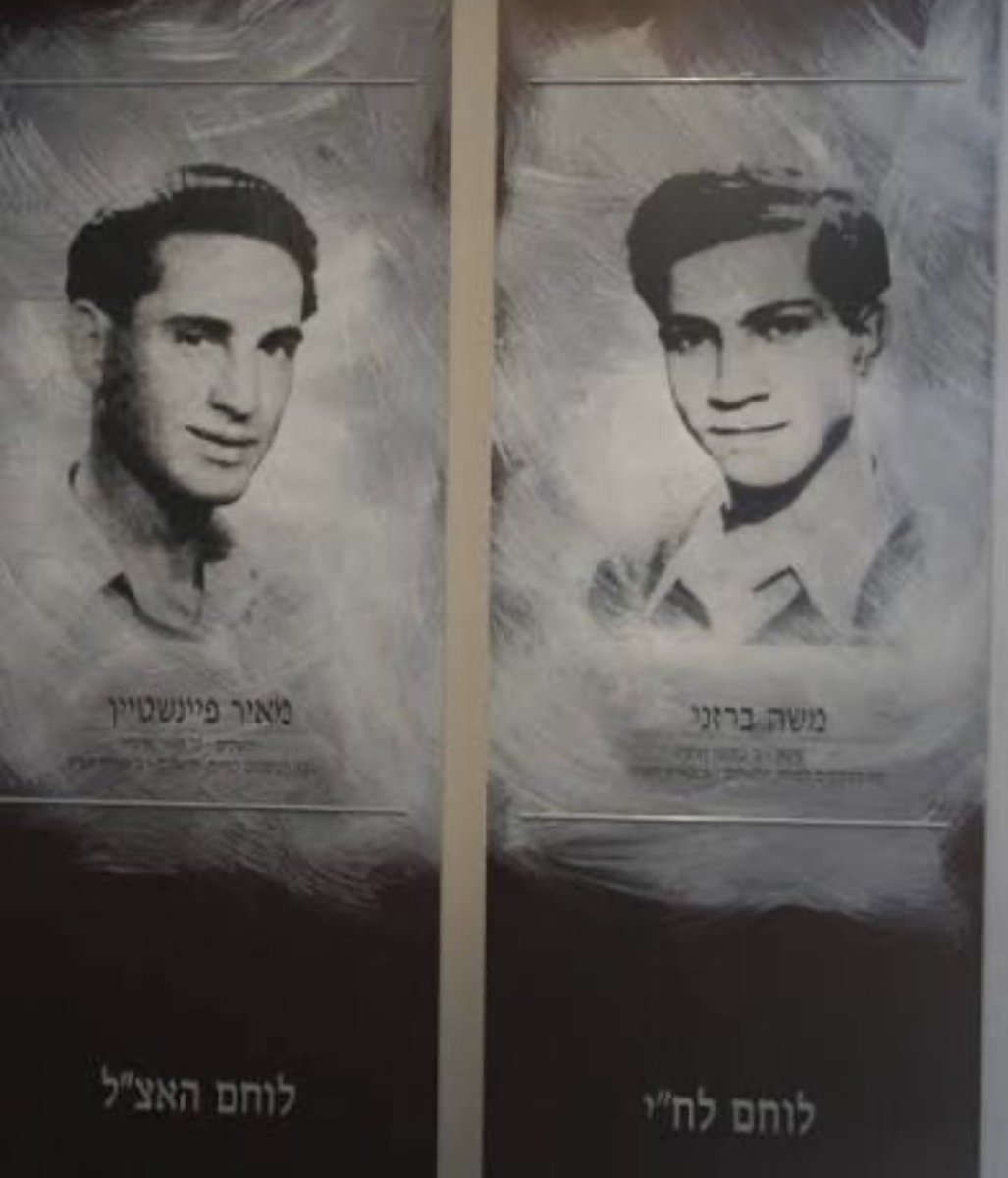In April 1947, two young Jewish underground fighters — Meir Feinstein (Irgun) and Moshe Barazani (Lehi) — were sentenced to death by the British authorities in Mandatory Palestine.
Feinstein, 19, was arrested after an Irgun bombing at the Jerusalem railway station. Though gravely wounded and missing an arm, he refused to betray his comrades.
Barazani, only 18, was caught with a grenade in hand on his way to assassinate a British officer. Both were sentenced to hang in the Russian Compound prison in Jerusalem.
But they had no intention of walking to the gallows.
The two men — from different underground groups — were placed in a shared cell. Over time, they forged a deep friendship and a united resolve: they would not allow the British to hang them.
With the help of sympathetic contacts, including a brave Mizrahi rabbi who visited the prison regularly, two grenades were smuggled into their cell — hidden inside hollowed-out oranges.
On the eve of their scheduled execution, they recited prayers together. Feinstein wrote a long letter to his family, describing his peace of mind and clarity of purpose. Then, sitting on the bed, Barazani placed the grenade between them. Feinstein held it tightly, wrapping his arm around his friend.
They detonated the grenade in their own cell.
They died by their own hands, not at the hands of the British.
Free men to the end.


No comments:
Post a Comment